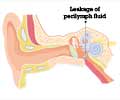For many people, hearing loss is part of aging. Hearing loss affects approximately one-third of people over age 65.
For many people, hearing loss is part of aging. Hearing loss affects approximately one-third of people over age 65. Among people age 75 and older, 40 percent to 50 percent experience hearing loss.
The August issue of Mayo Clinic Health Letter covers what changes occur with age-related hearing loss and when it’s time to visit a doctor to discuss ways to improve communication.Age-related hearing loss, called presbycusis (pre-bih-KU-sis), usually occurs gradually and affects both ears equally. Presbycusis is most commonly associated with changes in the inner ear, typically involving the loss of some of the tiny receptor hair cells found in the snail-shaped cochlea.
Age-related hearing loss tends to run in families, but the cumulative effect of loud noise and some medications can harm hearing, too. Drugs linked to hearing loss include gentamicin, an intravenous antibiotic typically used for severe infection; cisplatin, a chemotherapy agent; and some diuretic drugs, such as furosemide (Lasix).
With presbycusis, the ability to hear high-pitched sounds is usually affected first. The voices of women and children can be more difficult to understand. Some people with presbycusis find loud noises and sounds especially annoying. It also can be accompanied by ringing or buzzing in the ears.
When hearing loss is suspected, it’s a good idea to visit a primary care doctor or an ear, nose and throat specialist to determine if any treatable conditions are contributing to hearing loss. An audiologist can confirm presbycusis and offer ways to improve communication, including behavior changes, the use of hearing aids, or both.
Source-Newswise
LIN/J











